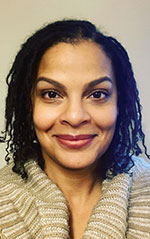Here is a practical first aid kit for mental health for diplomat families.
Rear Mirror

Beth Walrond
“Nearly 20% of children and youth ages 3 to 17 in the United States have a mental, emotional, developmental, or behavioral disorder, and suicidal behavior among high school students increased by more than 40% in the 10 years leading up to 2019. … These trends have exacerbated during the COVID-19 pandemic,” the National Library of Medicine reported in 2022.
These grim statistics mean that many of the children and families of diplomats have or will have mental health problems — and that doesn’t even take into account the unique stressors of diplomatic life, such as constant relocations, which can be tough even at the best of times.
Moving and starting a new chapter in life is always fresh and exciting, but it can and does take its toll. It is often our children and accompanying family members who pay the heaviest toll on the life of a diplomat. For families, the transition involves more than adapting to a new culture and environment. It also involves managing the emotional and mental health of each family member.
Being able to recognize and address mental health issues, especially in teens and pre-teens, is a crucial part of a smooth and healthy adjustment to a new life abroad or when returning to the U.S. after some time abroad.
What is Mental Health First Aid?
According to the Mental Health First Aid (MHFA) International website, MHFA is an evidence-based early intervention course that teaches participants about adolescent mental health and substance use challenges.
The program began in Australia in 2001 when health education nurse Betty Kitchener and mental health literacy professor Anthony Jorm founded Mental Health First Aid Australia, a national non-profit charity focused on health promotion training and research. Mental Health First Aid USA then adopted the program and launched MHFA programs across the United States, training more than 15,000 MHFA trainers and nearly 3 million volunteers, including former First Lady Michelle Obama.
But what exactly is MHFA? Here’s how the MHFA USA site explains it: “Mental Health First Aid is a course that teaches you how to identify, understand and respond to the signs of mental illness or substance use disorder. This training equips you with the skills you need to reach out and provide initial help and support to someone experiencing a mental illness or substance use problem or in crisis.”
What that means to me as a parent of an adolescent child, and why I chose to actively become an “MHFAider,” is because I wanted to develop tools and resources to identify and support mental health issues that my children and their peers may face. Just as many parents undergo standard first aid training, learn CPR, and what to do if someone is choking or burned, it is equally important to have the knowledge and skills to help others when their injuries or issues are not as visible as physical injuries.
As an MHFAider, you will learn to watch for signs, symptoms and behavioral changes caused by mental disorders and act as a supportive role.
Many people may be hesitant about the idea of becoming an MHFA volunteer because, as they are not licensed mental health professionals or clinically trained psychologists, they may feel uneasy about diagnosing mental health issues and may feel unprepared or unable to help. This is the great thing about MHFA – MHFA volunteers are not expected to act like licensed or clinically trained professionals.
As an MHFA certified, you will be guided to observe signs, symptoms, and behavioral changes caused by mental illness and to support those facing mental illness. Additionally, you will act as an intermediary to connect those struggling with mental health issues directly with trained professionals. As an MHFA certified, you are not expected to diagnose, treat, or prescribe. Rather, your role is one of observation, support, and proactivity.
About signs
Understanding mental health is the first step to helping someone in need. Mental Health First Aid courses are available around the world and are designed to teach you how to identify, understand and respond to the signs of mental illness and substance use disorders. These courses can equip you with the skills you need to provide initial support to someone who may be experiencing a mental health issue and connect them to the right care.
Teens and pre-teens are at a particularly sensitive time in their lives, even without the stress of a big move abroad. The chaos that comes with a move can exacerbate or even cause mental health problems. Here are some symptoms to look out for:
Behavioral changes. Watch for major changes in sleep patterns or eating habits, as well as a decline in academic performance.
Retreat. An increased desire to be alone or loss of interest in activities you previously enjoyed could be a warning sign.
Mood swings. While some degree of mood swings is normal for teenagers, severe or sudden mood swings may be a sign of an underlying mental health issue.
A feeling of despair. Take notice if your child frequently expresses feelings of worthlessness or talks about self-harming.
Benefits of MHFA
For diplomat families, becoming a mental health first aider isn’t just beneficial — it’s essential. Here’s why.
Early intervention. Early detection and intervention can make a big difference in recovery outcomes. Becoming a Mental Health First Aider gives you the knowledge to recognise the early signs of mental health issues.
Reduce prejudice. Educating yourself and your family about mental health can help eliminate the stigma surrounding mental illness, helping to normalize seeking help and talking about mental health.
crisis management. Immediate mental health support can be hard to find in a foreign country. Mental Health First Aiders provide vital support and guidance in crisis situations until specialist help can be accessed.
Build stronger families. Talking openly about mental health can bring families together and help everyone feel supported and understood.
As an MHFA volunteer, I am pleased to know that there are a variety of support services and resources available through the State Department.
State Resources
The Global Community Liaison Office (GCLO) provides a comprehensive list of resources and services to support employees and their families on overseas and domestic assignments on its public facing website. Visit GCLO’s Federal Agency Employee Assistance Program (EAP) Listing webpage or contact GCLOAskSupportServices@state.gov.
The list includes: Work Life 4 You The (WL4Y) program is a benefits program paid for by the Department of State, which the GCLO describes as a “24/7 comprehensive, confidential resource and referral service for Department of State employees and their families.” WL4Y provides free, 24/7 education and referral services to help Department of State employees and their families find the programs, providers, information, and resources they need to manage their personal and professional responsibilities.
Your counsellor will determine what services you need and are available and refer you to the right provider. Call your counsellor for individualised support, read our website articles and educational guides, order topic-related kits, join our monthly live talks, watch our webinars, listen to our audio programmes or request a free in-person aged care assessment with a qualified professional care manager.
By educating yourself and your family about mental health, you can help break down the stigma associated with mental illness.
Another great resource is Employee Consulting Services According to the Department of State’s website, ECS “provides free, confidential counseling with expert clinicians to eligible Department of State employees and their families to help with job stress, marriage and relationship issues, parent-child relationships, single-parent and multifamily issues, school adjustment, aging parent issues, separation, loss and grief, acute and chronic illnesses, depression, anxiety and other emotional or mental issues, financial concerns, life transitions, new career or retirement issues, and transitions before, during and after employment.” For more information, watch the ECS video on suicide prevention. ECS can be contacted at MEDECS@state.gov or (202) 634-4874.
MED also: Children and Family ProgramsThe mission of this office is to work with parents to identify and appropriately evaluate their children’s mental health and special education needs and establish effective treatment and education plans before and during their overseas assignment. For more information about the Child and Family Program, please contact MEDCFP@state.gov.
A great mental health resource for people abroad is Regional Medical Director Psychiatrist (RMOPs) are assigned overseas and are responsible for covering areas adjacent to their home country. According to the RMOP webpage, the program was established during the Tehran Hostage Crisis (1979-1981) and has grown to 24 positions, the majority of which are located in the embassy’s health department. RMOPs are psychiatrists (physicians with additional training after medical school) and can provide consultation, medication support, and some psychotherapy.
If you are fortunate enough to have an RMOP in your post, you can simply make an appointment through the mission’s health unit. However, because RMOPs operate on a regional basis and are not physically present in most posts, people needing services can seek a referral through their local health unit, make an appointment when an RMOP visits each of their missions, or contact them through the Regional RMOP Directory on the State Department’s intranet.
Practical steps to maintain your mental health
Open communication. Create an environment where family members feel safe to discuss their feelings without fear of being judged.
routine. Establish a stable routine to provide a sense of normalcy and security amid change.
Social connections. Encourage community involvement and seek out groups and clubs with common interests to build new support networks.
Self-treatment. Model and emphasize the importance of regular exercise, balanced nutrition and adequate sleep as the foundations of good mental health.
Professional support. When in doubt, seek assistance from a mental health professional. Many professionals offer telehealth services and can be an excellent option for FS families posting overseas.
Adolescent mental health issues have many causes, including relocating to a new country, which, although challenging, can also be an important event filled with opportunities for growth and learning. By prioritizing mental health, destigmatizing and normalizing mental health treatment, and being prepared to seek out mental health services and provide support as MHFA participants, Diplomat families can ensure this adventure is a positive and fulfilling experience for everyone.
When sharing or linking FSJ Citation of online articles is welcome and encouraged, but please be sure to cite the journal (Ministry of Foreign Affairs JournalPlease see the Permissions page for more information.


